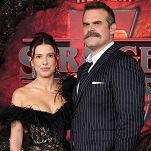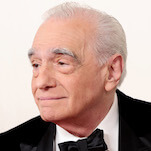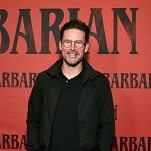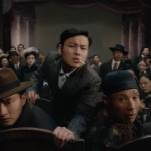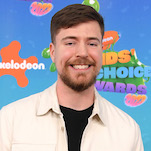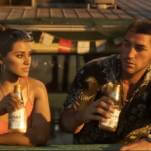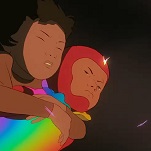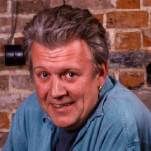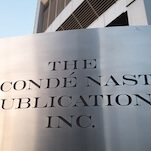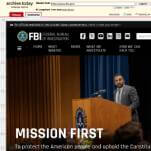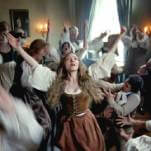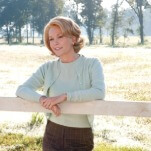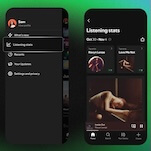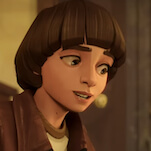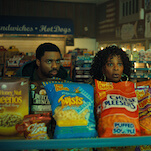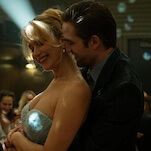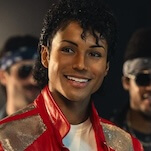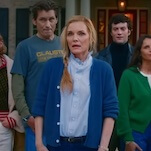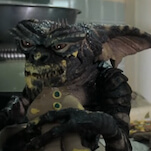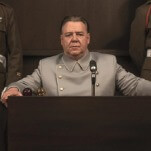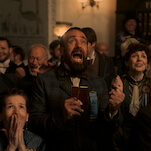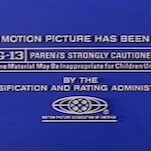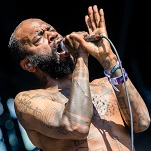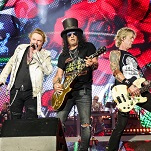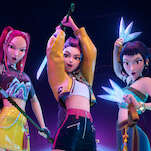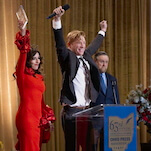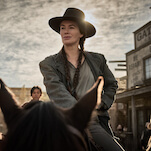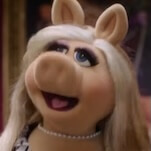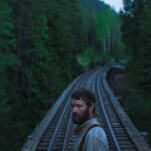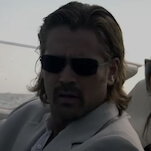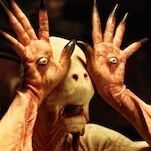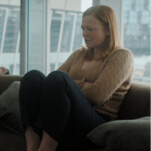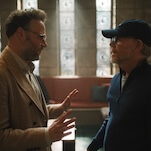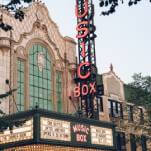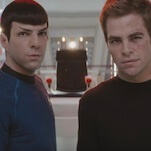Somewhere in some television archive, there exists footage from Merv Griffin's late-'50s game show Play Your Hunch in which Griffin and guest star Jaye P. Morgan perform a catchy-but-insulting original song about how to become a rock star by writing nonsense lyrics and adding deep echo. That's Griffin in a nutshell: painfully unhip, but sweetly so. On the three-DVD set The Merv Griffin Show: 40 Of The Most Interesting People Of Our Time, Griffin makes himself at home with celebrities, dropping names and sharing anecdotes like they were all part of a secret club, entrusted with preserving show-business order. Griffin was the kind of talk-show host who would sit down with Ingrid Bergman at the Cannes Film Festival and ask, "Is anything you've seen here as good as your wonderful pictures?"
The DVD set mostly contains full interviews from the '60s through the '80s, divided into "Greatest Hollywood Legends," "Great Comedians," and "Extraordinary Greats." That last disc is the most fascinating, as Griffin steps off the softball field to ask probing questions of future and former presidents Richard Nixon, Gerald Ford, Jimmy Carter, and Ronald Reagan. (In a 1967 interview, Griffin asks Nixon what it's like to be considered "a loser.") But there's also entertainment and historical value in Griffin's interviews with then-young comedians Jerry Seinfeld, Jay Leno, and Richard Pryor (who does a funny bit about B.O.), as well in his breezy chats with a Splash-promoting Tom Hanks (still in his smarmy stand-up guise) and a Risky Business-promoting Tom Cruise (who hadn't grown into his face yet, but still looks iconic with his Ray-Bans, toothy snicker, and comments about how in his movie, "The call girl is a metaphor.") In each case, Griffin treated future stars as peers, sharing the essential commonality that we were all on TV.
Key features: Griffin gives an audio introduction for each interview, which is especially useful for his chat with a forthright Orson Welles, who died two hours after he finished the show.

